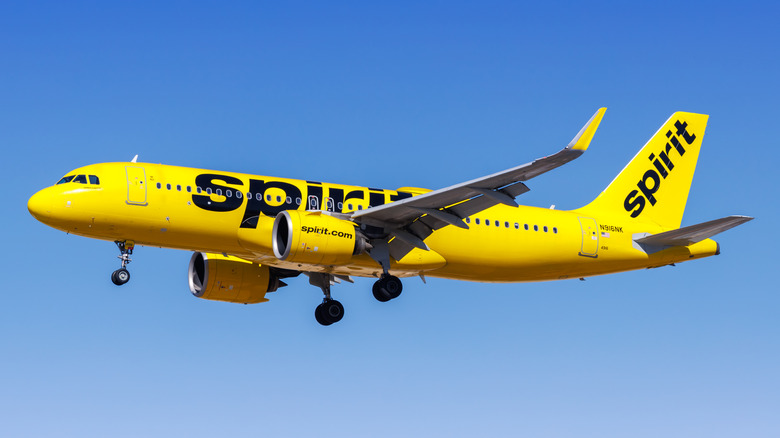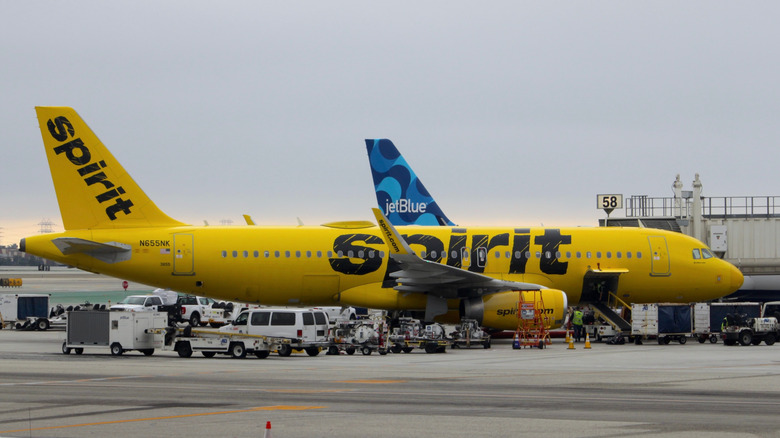Is JetBlue Really Buying Spirit Airlines?
Spirit Airlines has been in the news a lot over the past few years: two bankruptcy filings, a significant decline in passengers, and a failed merger attempt with fellow discount carrier JetBlue. Now, there are rumblings that JetBlue is planning another attempt at acquiring the floundering airline, but are the rumors true? No — at least, not yet. Spirit did, however, tell investors in October 2025 that it was discussing potential mergers, although it did not name the other parties.
To understand the state of affairs at Spirit Airlines, you need to know a bit about the company's history. Launched in the early 1980s as Charter One, the airline began operating under the Spirit name in 1992 and started transitioning to an ultra-low-cost-carrier (ULCC) business model in 2006, which was completed in 2007. The ULCC model is based on the idea of providing the lowest fare possible for passengers at the expense of any extras, including baggage and snacks. These types of carriers generate revenue from fees, and passengers expect a no-frills operation with less comfort.
Spirit filed for bankruptcy protection in late 2024 following its aborted merger with JetBlue, and exited bankruptcy in early 2025 after a financial restructuring. Its new financial plan failed, however, and the company again filed for Chapter 11 bankruptcy in August 2025. Spirit isn't alone, however — many of its fellow budget airlines are struggling, and Spirit's future is unclear.
Will Spirit Airlines pursue another merger?
JetBlue's attempted 2024 acquisition of Spirit didn't just fail; it was blocked by a federal judge after the U.S. Department of Justice sued to stop the deal, citing antitrust laws. In the last year, Spirit has suspended 40 routes, furloughed about a third of its cabin crew staff, and cut 114 planes from its fleet in a bid to reduce costs and stabilize its finances. In late October 2025, flight data from Harry Reid Airport in Nevada indicated a 46% drop in arrivals and departures on Spirit Airlines in the prior month, a decline not mirrored by other airlines.
With grocery prices still sky-high and tariffs raising prices on products like cars and electronics, why are low-cost airlines having trouble? A slump in the economy, evolving consumer trends, and policy changes that are removing the few free perks some airlines still provided are part of the problem. The pandemic also hit airlines hard, and supply chain problems and rising costs have contributed to financial woes.
In early October 2025, the airline received approval for $475 million in debtor-in-possession financing, a type of loan for companies in bankruptcy. A Newsweek report cited experts' belief that a merger may still be on the horizon as an ideal way forward for the airline, but whether any potential merger will be with JetBlue or another airline remains to be seen.

